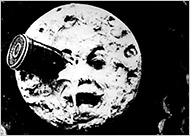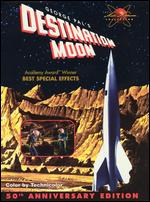Tomorrow is the 40th anniversary of the landing on the Moon in 1969. Neil Armstrong (“One small step for a man… one giant leap for mankind”) ad Buzz Aldrin planted the flag and put out a plaque marking the landing which, in under a decade, had been the result of spending $183 Billion Bucks and upping the confrontation with the Russians, who had achieved the original advance in space by putting up Sputnik and sending two different cosmonauts on full orbits around the Earth.
I was a Junior in college and I know I was impressed. Jack Kennedy, who kicked off the program wasn’t alive to see the results he had called for carried out by NASA. Lyndon Johnson, who pushed the budget through, was no longer in office. And Dick Nixon, who was never really a supporter of the space program, but who saw its publicity value, got to congratulate the two moonwalkers by phone as they stood looking at our planet in space.
The reason why the moon oriented space program got the push it did was the Cold War. To let the USSR get ahead of us scientifically, in a way that could have military consequences, was not going to be tolerated. When the military threat of the USSR was gone… when the USSR itself was gone… there was no reason to put that kind of thrust into our rockets. Reagan wanted to put our military budget relating to space into missiles pointed back at our enemies from satellites. George H.W. Bush was concerned with Saddam Hussein’s actions, but there was no Iraqi space program to compete with. Clinton saw the public relations advantages of doing a minimal amount of activities with a space station and George W. Bush, well, he barely saw that,
Originally, NASA had planned to have us on Mars by 1987. People, that is. In the 21st Century we have managed to get a couple of crawling robot TV cameras on Mars, and a very old space shuttle is still flying on missions that do very little. And we are bored with it all.
That’s right… bored. We rarely know when a shuttle goes up any more (unless it blows up in space… dead people are always news wherever they are) and we don’t really seem to care. It is not as important as unemployment or health care or the recession. They talk about getting folks back on the moon by 2020… but you can bet that such a program, without some kind of real, philosophical need by Americans is unlikely to make the deadline. Or, if the Iranians gave up on nuclear power and focused their attention on a Muslim moon base, perhaps we would have a need to beat the date. That’s how we’re programmed.
 The 19th Century and early 20th once had a philosophical and artistic need to get us to the moon. Jules Verne and H.G. Wells created literary works. Filmmakers from the silents to the sci-fi directors of the 1950s got us to the moon frequently (and rarely with rocket ships.) Science Fiction magazines in the 1920s made Hugo Gernsbach a rich publisher and getting us to the moon was an established need.
The 19th Century and early 20th once had a philosophical and artistic need to get us to the moon. Jules Verne and H.G. Wells created literary works. Filmmakers from the silents to the sci-fi directors of the 1950s got us to the moon frequently (and rarely with rocket ships.) Science Fiction magazines in the 1920s made Hugo Gernsbach a rich publisher and getting us to the moon was an established need. So many youngsters in my generation grew up wanting to be involved that science programs in colleges grew faster than arts programs and that all helped us get to the 1969 landing.
So many youngsters in my generation grew up wanting to be involved that science programs in colleges grew faster than arts programs and that all helped us get to the 1969 landing.
And now here we are, 40 years later, watching a 72-year-old Buzz Aldrin on TV being interviewed about a future that has become the past. We are not pushing for it any more… and that is too bad.
Under The LobsterScope
5 comments